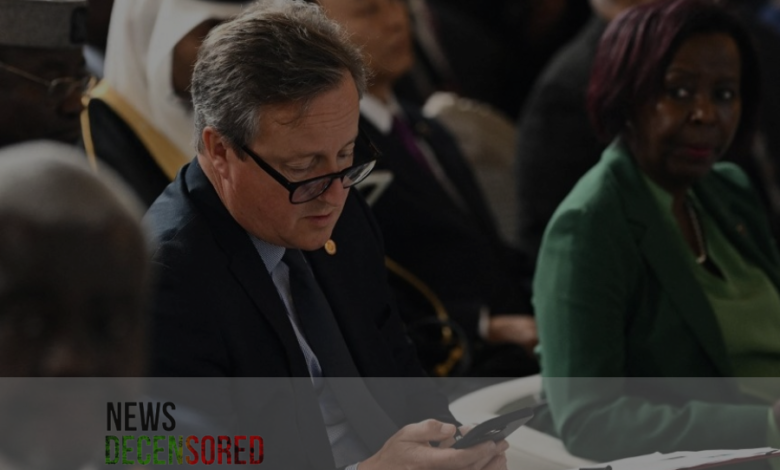UK Accused of Obstructing ICC Prosecution

The United Kingdom has been accused of obstructing the prosecution of Israeli war crimes by delaying the International Criminal Court’s (ICC) decision on whether to issue arrest warrants against Israeli Prime Minister Benjamin Netanyahu.
In late May, ICC prosecutor Karim Khan applied for arrest warrants for Netanyahu, Defence Minister Yoav Gallant, and Hamas leaders Yahya Sinwar, Ismail Haniyeh, and Mohammed Deif, alleging war crimes.
On Thursday, the ICC judges allowed the application of the UK’s legal grounds to be admissible.
A member state of the ICC, the UK, in early June, filed a communication asking the court to provide written information on whether it can compel Israeli nationals to appear in its court because Palestine cannot prosecute them under the provisions of the Oslo Accords, treaties that Israel signed with PLO in 1993.
The UK says that as per the accords signed with Palestinian authorities, they do not have jurisdiction over the Israeli nationals; therefore, they cannot accept the jurisdiction of the ICC.
A preliminary decision of the Chamber of Appeals, issued in February 2021, found that the court is competent in the occupied Palestinian territories.
Chris Doyle of the Council for Arab-British Understanding said, “The UK government should stop interfering in ICC rulings that it has endorsed…there is a clear pattern here of contributing towards what is probably a genocide and turning a blind eye to Israel’s crimes.
The International Centre of Justice denounced the English request for Palestinians ICJP as “a blatant pro-Israel attempt to shut down the prosecution of war criminals.
For the ICJP, “The Oslo Accords themselves show that the parties to the text cannot rule out the jurisdiction of the Court in Palestine. ”
The ICJP claimed that Oslo’s provisions prescribe how the Palestinian authorities can, however, ensure Israelis observe the law.
This means that the Palestinian authorities remain free to pass legislation and grant ICC jurisdiction.
The ICJP also said that the UK’s position was to allow Palestinians to ‘‘seek justice only through the Israeli judiciary and legal system. ”
If the UK sees such mechanisms as critical for protecting its legal processes, the Foreign Office could use available measures, such as establishing the Special Tribunal under the Security Council, as suggested by the ICJP.
Regarding the inquiries, the Foreign Office claimed, “The UK believes that the Court has not considered yet the effects and consequences of the Oslo Accords on the jurisdiction in this case, and this must be done at the beginning of the process. ”
As Doyle noted, given Labour’s stake in the July 4 elections, a minimum request from any government that recognises the commitment above towards international law should be to withdraw this request.
MEE contacted the Labour Party and shadowed foreign secretary David Lammy for comments on the matter but did not get a response when writing this piece.
Lammy said on 21 May that if the Labour Party came to power, the British government would support the ICC’s issuance of arrest warrants.




